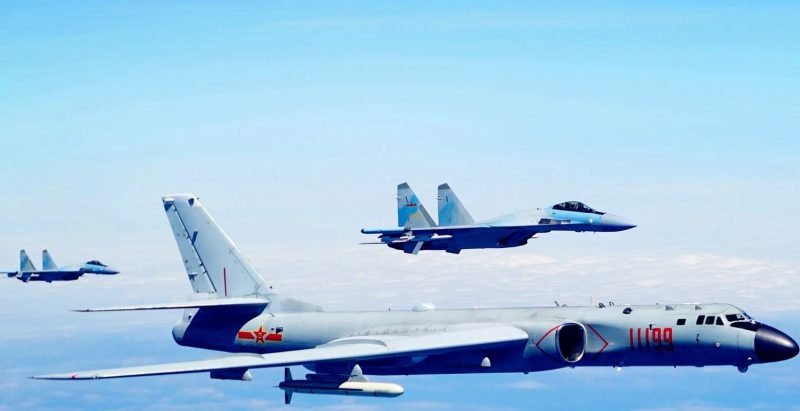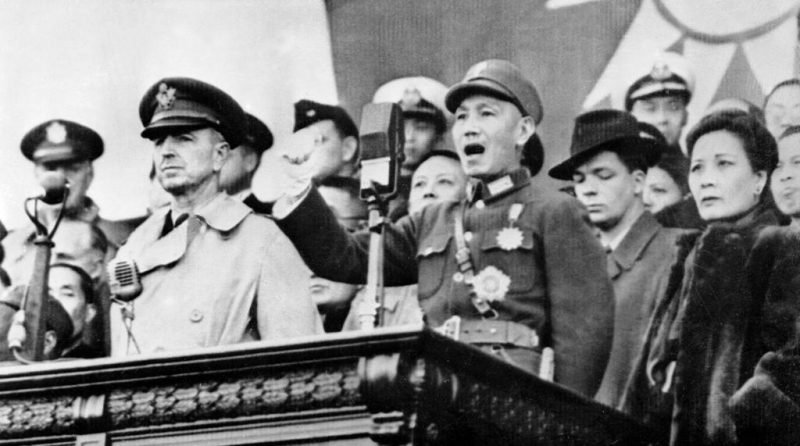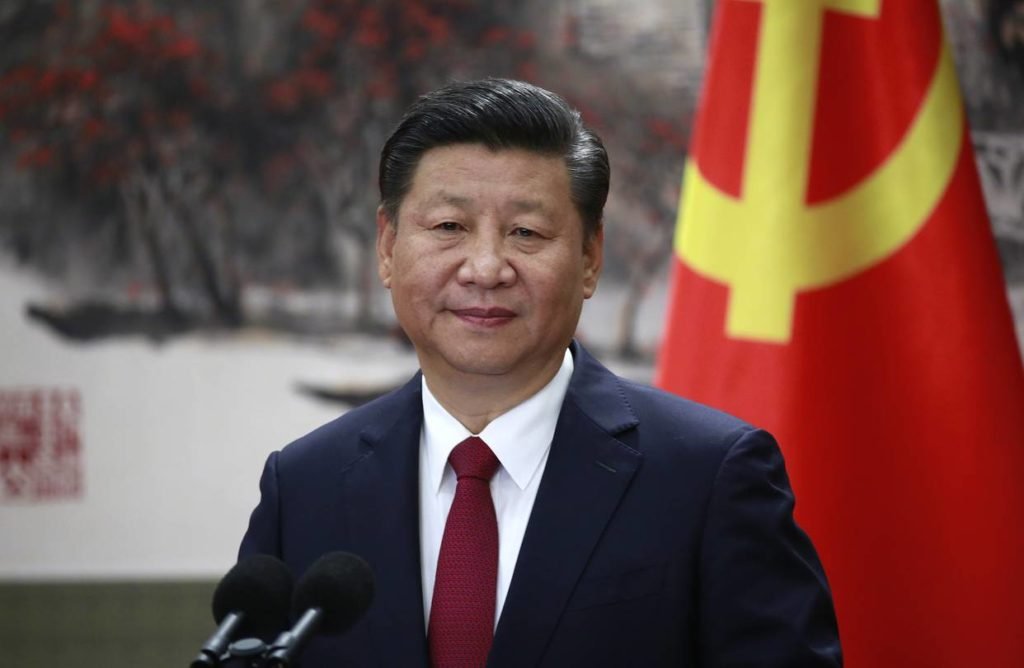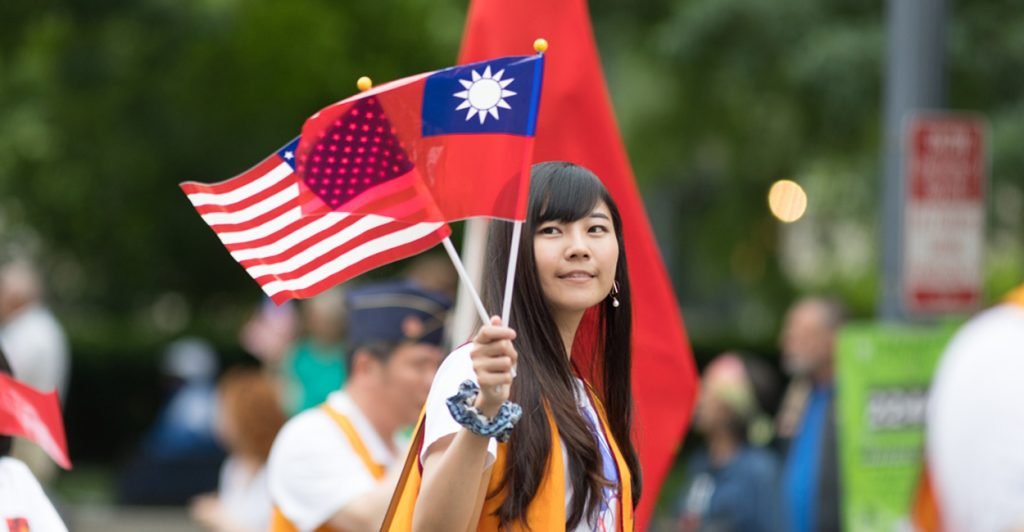Chinese air incursions: Bridging the gap between U.S.- Taiwan

Taiwan recently reported large air incursions by Chinese warplanes, just days after the new US president Joe Biden took office and reiterated its rock-solid commitment towards Taiwan. After which China warned Taiwan that any attempt to seek independence “means war”. Beijing is apprehensive about Taiwan’s formal declaration of independence and is trying to threaten Taiwan by a series of air incursions in Taiwan’s air defence identification zone and over the waters between the Southern part of Taiwan and Taiwan controlled Pratas Islands in the South China sea.
The background behind China-Taiwan relations
The Austronesian tribe is known to be the first settlers in Taiwan, it is claimed that this tribe belongs originally to modern-day South China. In AD 239 China discovered Taiwan when it sent an expeditionary force to explore. Taiwan was first administered for a short period by the Dutch and later the administration was taken over by China’s Qing Dynasty from 1683 to 1895. This is one of the arguments which Beijing uses to back its territorial claim.
Taiwan’s majority of the population consists of Hoklo Chinese and Hakka Chinese who migrated from China in the 17th century due to turmoil and hardship. The descendants of these migrants now constitute most of the population in Taiwan. After Japan’s victory in the first Sino-Japanese war in 1895, the Qing dynasty had to give away the administration of Taiwan to Japan but soon after the Second World War, The Republic of China being one of the victors began to rule Taiwan again with the consent of its allies after Japan surrendered the territory it had taken from China.
Since the end of the Civil War in 1949, China and Taiwan have had separate governments. Relations between China and Taiwan were improving in the 1980s and China introduced a new set up “One Country, Two Systems” according to which Taiwan will be given autonomy if it accepted reunification with China. This same system was established in Hong Kong to gain confidence and attract Taiwanese people to join the mainland, but Taiwan rejected this offer.

During the Civil war in China, Chiang Kai-Shek and his troops were overthrown by the Communist armies under Mao Zedong. After which Chiang and his residual government fled to Taiwan in 1949 and is recognised as Mainland Chinese. They constitute only 14% of the population still they managed to dominate Taiwan’s politics for many years. Chiang’s son, Chiang Ching-Kuo, started the process of democratization because of the growing resistance against the authoritarian regime from the local population and under the pressure of pro-democracy movement. Beijing was alarmed by the victory of Chen Shui-bian in 2000 election, the island’s first non-KMT president. Mr Chen backed independence openly and was re-elected in 2004 but he started supporting China to pass an anti-secession law in 2005 and encouraged it to use non-peaceful means against Taiwan if it tried to declare formal independence.
“Taiwan independence” elements
China has always portrayed itself as a peace-loving country but Taiwan’s status is a red line for Beijing as it considers this issue of unimpeachable territorial integrity. When it comes to Taiwan, it is ready to use military force to prevent any move towards formal independence. This series of incursion can be a warning for President Tsai, who leads the Democratic Progressive Party which leans towards official independence from China. Taiwan sees itself as a sovereign state with its own military, constitution and elected leaders but China, on the other hand, considers Taiwan to be a renegade province and is ready to use military force to prevent any move towards formal independence by Taiwan as evident by its recent incursion which might be a step to test President Biden’s support for Taiwan.
China has clearly warned Taiwan that any attempt to seek independence “means war”. This warning comes just days after it started its military activities, flew warplanes near the island and when U.S. President Joe Biden reaffirmed his commitment towards Taiwan. The Chinese defence ministry has tried to rationalize its actions by considering U.S. support for Taiwan an issue of threat towards its national sovereignty and security. China’s defence ministry spokesperson Mr Wu Qian defended its recent military activities by portraying it as a response to external interference and provocation by ‘Taiwan Independence’ elements.

China’s insecurity towards Taiwan independence
The Chinese government considers Taiwan as a breakaway province and aspires to reunify again. Taiwan which has never officially declared independence and has been hardly recognised by a handful of states, claims to be a separate nation. Beijing has been trying to limit Taiwan’s international activities and influence in the Pacific regions because the democratically elected government of Taiwan has strong commercial and informal links with many countries including the United States. China has been pressing the international companies to list Taiwan as a part of Chinese territory on their websites and is trying to intimidate them by blocking their businesses in China if they failed to comply.
China’s relation with Taiwan has deepened on economic lines. Taiwanese companies have invested a lot in China and over one million Taiwanese are residing in China and running their businesses. Even though it seems that a huge part of Taiwanese economy is now dependent on China, however, this a mutual dependence, because of this reason military action against Taiwan are less likely as China’s economy will be equally affected. Still, we can’t ignore China’s expansionist and assertive attitude towards Taiwan.

Deepening US-Taiwan ties
The new U.S. administration is going to exert a lot of pressure on China on a wide range of issues like human rights, trade disputes, Hong Kong and Taiwan, amid the deteriorating relations between the two. China conducted the recent military drills just days after President Biden took office, this move can be seen as an experiment by the Chinese to test U.S. President’s commitment towards Taiwan after former President Trump and Taiwanese President Tsai Ing-Wen tried to change the status quo over the past four years. President Biden also reiterated America’s support towards Taiwan and expressed their obligation to assist Taiwan with their self-defence. Even though the substance of the new U.S. administration’s policies towards China and Taiwan remains to be seen, U.S. state department spokesperson Ned Price has stressed that the U.S. would continue to deepen its ties with the island.
This rock-solid commitment might have triggered China, after which Chinese defence ministry spokesperson Wu Qian gave a clear warning “We warn those Taiwan independence elements, those who play with fire will burn themselves and Taiwan’s independence means war.” Contrastingly, the series of drills and warning have strengthened the ties between the U.S. and Taiwan and has led to an unofficial alliance between the two as evident from current U.S. Navy’s presence in the South China Sea. The support from Washington remains solid over the transition from Trump to Biden’s administration.
Taipei is well aware of Beijing’s expansionist agendas still; it has proposed to have a dialogue to resolve the conflict but only under the conditions of equality and dignity. However, it has also expressed very clearly that it will not back down when receiving pressure and will not rashly advance in seeking support from outside.


















